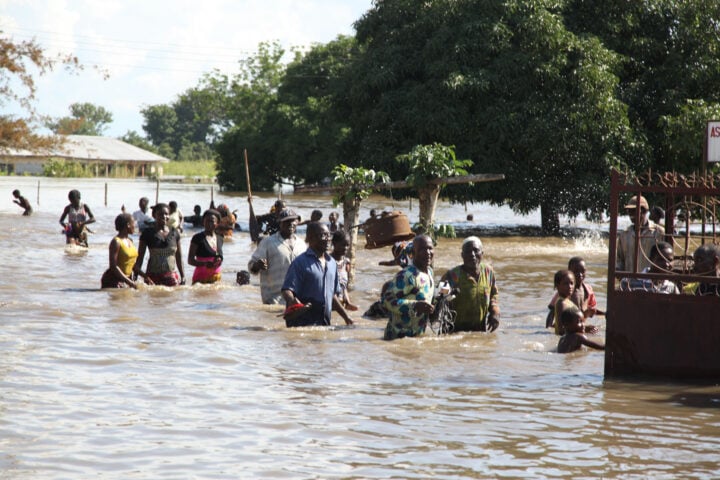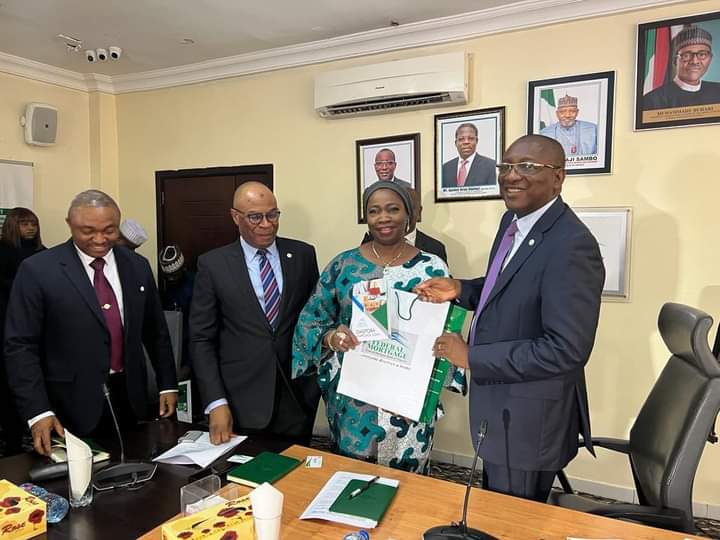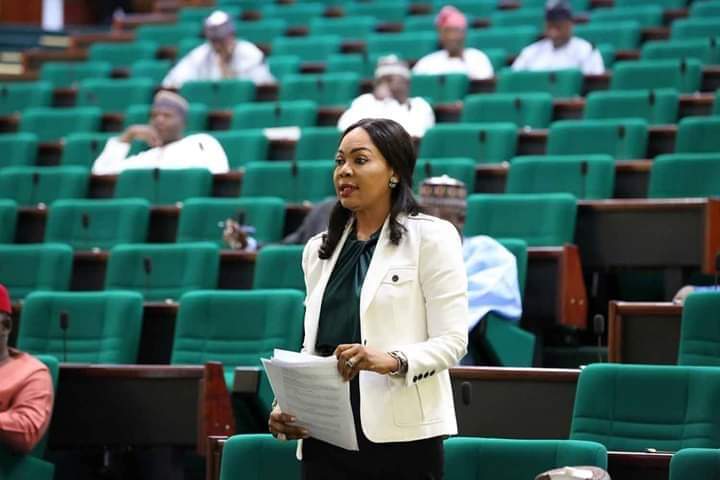Online conversations especially on Twitter have claimed that the recent flooding in Nigeria is a result of government negligence and nothing related to climate change.
“The flooding in Nigeria is NOT a climate change issue! It’s a negligence one,” reads a tweet.

In another post with a similar message, another Twitter user categorically said the flood situation in “Lokoja has nothing to do with climate change”.
Advertisement
“It’s a failure of foreign policy to Cameroon and the greed that has led governors to eat the ecological funds meant to either build a dam to break the current or an engineering solution to divert the flow,” he said.
The situation in Lokoja has nothing to do with Climate change.
It's a failure of foreign policy to Cameroon and the greed that has led governors to eat the ecological funds meant to either build a dam to break the current, or an engineering solution to divert the flow.
Advertisement— Kelvin. (@realkelvin07) October 8, 2022
The United Nations defines climate change as “long-term shifts in temperatures and weather patterns” which may be natural.
Far back as the 1800s, human activities have been the main driver of climate change, primarily due to the burning of fossil fuels like coal, oil and gas, which produce heat-trapping gases.
Advertisement
Flooding in Nigeria
The recent flooding disaster in Nigeria has been confirmed to be the worst in decades. According to the federal government, over 600 persons have been confirmed dead, while over 2.5 million others have been adversely affected.
The United Nations on October 19, posted a tweet on its official channels affirming that the 2022 flooding is Nigeria’s worst.
“Nigeria is experiencing the worst flooding, impacting more than 2.5 million people. Over 600 people have lost their lives. 1.3 million people have been displaced. Over 200,000 houses damaged,” the tweet reads.
Advertisement
The UN via Twitter also said that “Nigeria needs urgent support from developed nations to adapt and mitigate climate change”.
The Impact of Lagdo dam on flooding in Nigeria
Advertisement
In 1982, the Cameroonian government completed the Lagdo dam, which led to the need for Nigerian government to build a water-withholding dam at Dasin Hausa, in Furore local government, Adamawa.
The Nigerian dam was expected to cushion the effect of flooding from Cameroonian’s Lagdo dam. It was also supposed to be two and half the size of the Lagdo, which ordinarily would aid irrigation and power generation.
Advertisement
Forty years later, Nigeria’s Dasin Hausa Dam is yet to be completed.
On September 13, 2022, Eneo Cameroon, the country’s historical main electricity company, issued a statement to inform residents of Garoua, the capital of the north region of Cameroon – which lies on the Benue river – that the dam will be released between September and October 2022. The electricity company urged residents to evacuate from the flood-prone areas within the period.
Advertisement
Many Nigerians have blamed the 2022 flooding and previous ones on government’s negligence to complete its dam which has been under construction for decades
However, Suleiman Adamu, Nigeria’s minister of water resources, recently told the senate committee on water resources in Abuja that the heavy rainfall, not excess water from Cameroon is responsible for the devastating flood that ravaged about 30 states in Nigeria.
The link between flooding and climate change
A recent article by the NY Times explains that several factors are responsible for the intensity and frequency of flooding. Precipitation, snowmelt, topography and soil moisture are examples of causative factors accountable for flooding.
However, the article further clarifies that“climate change, which is worsening extreme rainfall in many storms, is an increasingly important part of the mix”.
Fluvial flood or river flood occurs when heavy rainfall or accelerated melting of ice results in a river, stream or lake overflowing its bank. Coastal flood occurs when land areas near the coast are inundated by water, often following a severe storm that collides with high tides. In areas where there are no water bodies, flooding can also occur when the soil becomes super-saturated with intense rainfall over a short period of time.
In recent months, a couple of states in Nigeria are experiencing river floods. Climate change has increased the intensity of rainfall across several states. This explains the devastating flooding recorded in states like Benue, Kogi, Anambra, Adamawa and Jigawa, all situated around major rivers.
Mansur Matazu, the director-general of the Nigerian meteorological agency (NiMet), told journalists at a workshop in October that the recent flooding was a result of intense rainfall.
The professor added that recent flooding was partly a result of rainwater collected in reservoirs and dams that are now opened upon exceeding their capacity.
“So presently, on September 13, the Lagdo dam was released, and other dams were also released. So, what we are witnessing now is riverine flooding. And from the information we are getting, we are going to see more floods,” he said.
“And now the rains are concentrating on the north-central and the southern states. So, that will be a combination of short-duration, high-intensity rain, with riverine flooding. We are going to see more of these floods in the north-central states as we have seen in Kogi State and also southeastern and southwestern states as we are beginning to see in Anambra and some parts of the south-west.”
Verdict
The claim that the flooding disaster recorded in Nigeria in 2022 is not related to climate change is misleading.
Adequate evidence shows that Nigeria has also been affected by climate change, which has influenced intense rainfall, resulting in major rivers overflowing their boundaries. This has led to river flooding in several parts of the country.
This fact check was produced by TheCable with support from Code for Africa’s PesaCheck, International Fact-Checking Network, and African Fact Checking Alliance network.







